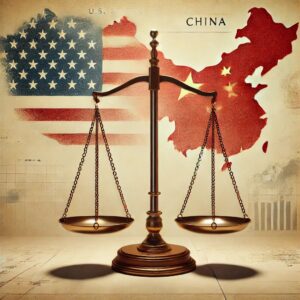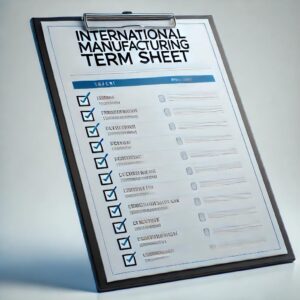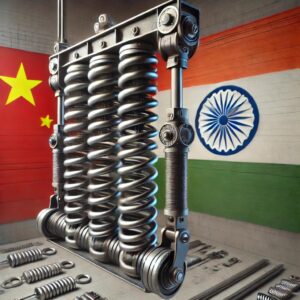If you don’t know this yet after reading our blog, you should tattoo on your forearm that “there is no such thing as boilerplate in a China contract.” That’s really true for any contract. I don’t care how long or short, important or casual. The boilerplate (or standard terms and conditions) section of a contract is almost always at the end of a contract after our brains are tired, and it is where savvy (or sinister) folks like to insert or modify important contract terms.
A potential client recently sent us a contract they needed enforced. It was written in both Chinese and in English, which generally shows that both sides knew at least something about Chinese contracts. As we dug deeper, it became clear that the English portion was silent about the controlling language but the Chinese portion made crystal clear that the Chinese language portion would control. That is also normal for a contract where the Chinese party has no assets outside of China or where the Chinese party will not agree to non-China jurisdiction or enforcement. And we often recommend Chinese as the governing language and China as the dispute resolution location where the Chinese party has no assets outside of China so that our clients have a chance of enforcing their contract.
In this particular contract, the Chinese language portion was very different from the English language portion. These terms were so different that the American company that sent us the contract had no claim under the Chinese language portion, but it would have had a claim under the English language portion, which would not have been enforceable in a Chinese court because it conflicted with the governing Chinese portion of the contract. Our firm always rejects these sorts of cases because we just assume the Chinese court will look only to the Chinese language portion of the contract, as it should.
This taking advantage of what looks like a dual language contract is a very old trick, and one we have seen at least a dozen times, and not just with China or the Chinese language. But for the trick to work, the English speaking party has to assume that the foreign language in its contract (in this particular case, Chinese) is the same as the English and never even bother to get it translated. The non-English speaking foreign party is betting on haste, ignorance, laziness, cheapness, naiveté, or all of the above. Unfortunately, that is too often a good bet.
We also have on two recent occasions received poorly drafted Nondisclosure Agreements (NDAs) from potential clients who want to use those agreements to sue their manufacturer for copying their product and stealing their customers. In both cases, our China litigation lawyers had to write the following email:
Your NDA does not help you one bit. It says your Chinese manufacturer cannot disclose confidential information to any third party, but it does not say a thing about it stealing your designs or competing with you. In fact, it makes clear that it is free to do whatever it wants with whatever is in the public domain and it will no doubt argue that your __________[product] is in the public domain. Also note that the manufacturer did not chop/seal this document, so there is also a good chance that it may not even be binding on the manufacturer and an even better chance that it will at least make that claim.
It is possible that you can bring a trade secret/unfair competition (or some other non-contractual) claim against your manufacturer, but in many ways, your existing contract may hurt you in pursuing even those claims. If you want to sue this manufacturer I suggest you seek to retain Chinese counsel to do so, but I suspect that you will have difficulty finding a good firm that will take this case on a contingency basis.
Whatever you do in terms of your present problem, you should get a new contract in place for any new China orders. That new contract should, among other things, state clearly that your manufacturer cannot use your designs or copy your products or solicit your customers.
I am sorry we cannot be more encouraging on this.
Before anyone accuses us of writing this post to try to convince those who are doing business with China to retain a qualified and Mandarin-fluent lawyer to assist them with their China contracts, let me say that I plead guilty. There is a reason I have spent the last 20 years studying Chinese. I have said it before and I will say it again. Nearly all of the contracts we see that were drafted without such assistance are of little to no value to the foreign party. I know that is strong language, but it is also the truth.
And if after reading this you are still not convinced, at least run your contract through Google translate, which will mean downloading the PDF contract you received in WeChat and converting it to Word so you can paste it into Google translate. It will not be nearly as good as having a legal mind behind it, but at least it will give you the Chinese portion in English so you can compare that against the supposed English equivalent language in your dual language contract.

























